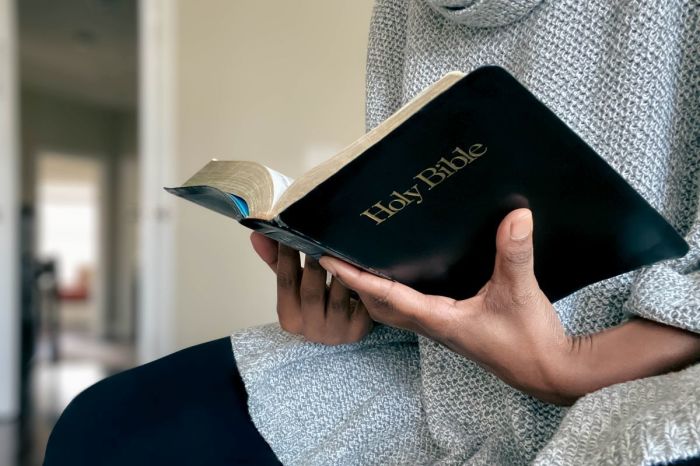
Americans are more likely to have a stronger sense of identity the more they interact with Scripture, according to the newest installment of the “State of the Bible USA” report.
The American Bible Society released the sixth chapter of its “State of the Bible USA 2025” report on Thursday. The research examines the sense of identity among the American public based on responses collected from 2,656 American adults in online interviews conducted between Jan. 2 and Jan. 21.
“Identity levels are strong among people who practice religion — and not just Christianity,” said American Bible Society Chief Innovation Officer and State of the Bible Editor-in-Chief John Farquhar Plake. “Something about core beliefs, shared worship, and common culture gives people a better sense of who they are.”
Researchers measured the respondents’ level of agreement with statements declaring “I know who I am,” “I always have a good sense about what is important to me,” and “I know what I believe or value.”
Breaking down the results by religious affiliation revealed that practicing Christians have the strongest sense of identity, with 64% categorized as having a strong identity.
At the same time, 52% of respondents who adhere to a different religion besides Christianity had a strong sense of identity. The percentages of nominal Christians (40%), casual Christians (33%) and religiously unaffiliated respondents (33%) who had a strong sense of identity were much lower.
A similar pattern emerged when classifying respondents by their level of Scripture engagement.
Sixty-three percent of Scripture-engaged individuals, defined as those who score 100 or higher on the Scripture Engagement Scale, had a strong sense of identity. On the other hand, just 38% of those in the “Movable Middle” and “Bible Disengaged” categories, who received lower scores on the Scripture Engagement Scale, had a strong sense of identity.
Frequent Bible use is also correlated with a strong sense of identity, researchers believe.
The report defines Bible use as connecting with Scripture outside of a church setting at least three times a year. Among those who use the Bible every day, 69% reported a strong sense of identity. A majority of respondents who use the Bible several times a week (51%) and exactly one-half of those who use the Bible at least four times a week had a strong sense of identity.
A strong sense of identity was less frequent among those who use the Bible once a week (45%), once or twice a year (42%), less than once a year (41%), three or four times a year (38%), never use the Bible (38%) and use the Bible once a month (33%).
“When people not only read the Bible but build their lives on it, they’re far more likely to have a strong sense of identity,” Plake stressed.
Among the generations, the data shows that “Gen Z men have the lowest percentage of people who are in the Strong Identity group” (30%) and the highest percentage in the “Weak Identity” group (also 30%). Meanwhile, 41% Gen Z women say they have strong identities, and 23% say they have weak identities.
The sense of identity appears to “strengthen with age,” the researchers wrote in the study.
“Well more than half of the Boomer+ generation, women and men alike, are in the Strong Identity group,” they wrote. “It can be argued that young people have permission to be less confident in their identity, since they’re still young. As we age, we learn more about who we are, what we believe, and what we consider important.”
Ryan Foley is a reporter for The Christian Post. He can be reached at: ryan.foley@christianpost.com

















